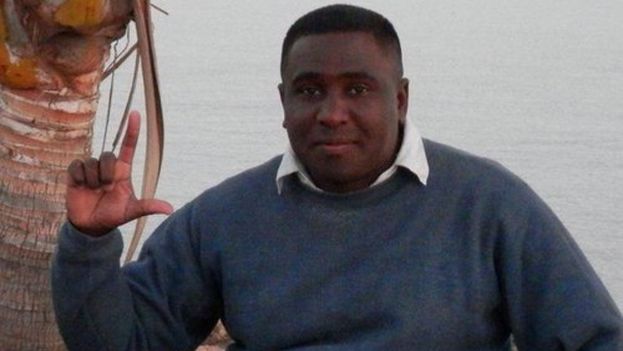
![]() 14ymedio, Rosa Maria Paya, Miami, 4 September 2017 — In the early hours of September 1st they did it again. It happened just as it did 14 years ago when, in March of 2003, the Cuban regime arrested dozens of Varela Project activists and independent journalists. This time the assault lasted 10 hours.
14ymedio, Rosa Maria Paya, Miami, 4 September 2017 — In the early hours of September 1st they did it again. It happened just as it did 14 years ago when, in March of 2003, the Cuban regime arrested dozens of Varela Project activists and independent journalists. This time the assault lasted 10 hours.
Listening to the narration of the vexations perpetrated by the political police at the home of the former prisoner of conscience Iván Hernández Carrillo was like reliving the horror unleashed in 2003, when the repression tried to abort Cuban Spring, as my father, Oswaldo Payá, called the historical conjuncture where the dictatorship felt more exposed and cornered than ever.
Over two days, the repressors of the Ministry of Interior broke into the houses of most of the leaders of the Varela Project, most of whom were dear friends of our family. The triggering cause was that this legal initiative was getting the support not only of civil society, but also of a large part of the citizenry, which was sufficient reason to imprison 75 peaceful opponents throughout the island. On that occasion the searches seemed to go on forever, as they do today, and were and are brutally humiliating.
Iván Hernández was beaten at the doorway of his home where he lives with his family, in the municipality of Colón, Matanzas province. It was before dawn, when the family was still asleep. He asked for some time to get dressed before opening the door and it was then that they broke down the door and opened it by force.
The police entered with two German shepherd dogs. With great violence they pushed him against the wall while twisting his neck.
They immediately put handcuffs on him with his hands behind his back and did the same to his mother, Asunción Carrillo, a lady of 65 years. Then the two were pushed into the patrol cars, and arbitrarily detained until the evening.
Then the search began, followed by the robbery. About 50 people, including police, special troops and State Security agents, minutely searched every space in the house, including the garbage bins. They took everything they found in their path: both the cell and landline phones, fans, computer, old fax machine, a tablet, the clock, the television, all the family’s work and personal papers, the scarce office supplies, pencils, pens, staplers. Like neighborhood shoplifters, even some of clothes and shoes were stolen.
They also took away all the books, about 2000 volumes collected for years and years, which made up the family’s independent library and private collection. All were books that they made available to the community as loans, completely free of charge.
In this way, the entire collection of José Martí’s Complete Works was stolen, which State Security’s G-2 officials probably have not read nor will read, ignorant of even the phrases of reproof that the man we Cubans call ‘the Apostle’ dedicated to Marxism, as a doctrine of hatred: “To set men against men is an appalling task,” José Martí wrote, on the occasion of Marx’s death.
But, just like 14 years ago, the main message of this police attack is not aimed at the courage of the opponents attacked, but rather, it aims to discourage their families, neighbors, friends, and other Cubans, wherever they live. The message is terror in its pure state: that was the source and will be the legacy of the so-called Cuban Revolution. The goal is the paralysis of our people. The reason is the fears of a regime that knows itself to be vulnerable.
In truth, this cruelty exposes how weak the elite corporate-military perceives itself to be, though by now it certainly has all the power in Cuba and has hijacked our national sovereignty; but it didn’t know, does not know and will never be able to deal with differences, which is why it only attempts to annihilate them.
But the task of exterminating differences is humanly impossible, the socioeconomic system in Cuba failed decades ago and the dynasty has nothing to offer. That is why it represses without question, but that is also why it must disappear as a regime. We are much closer to freedom today than it seems to them with their atrocities. Because Cubans, like all other human beings, want to be the owners of our own lives (lives in truth, not in faked loyalty), to be able realize our most creative ideas, and to take advantage of the opportunities that we ourselves are capable of creating.
For this noble cause, Iván Hernández works with many others, promoting the Cuban people’s right to decide through the citizen campaign Cuba Decides, to which all are invited. The democratization of a country that does not deserve to be left out of the assembly of contemporary societies is a cause that cannot fail. It is the cause through which, sooner rather than later, the Cuban nation will rise.
